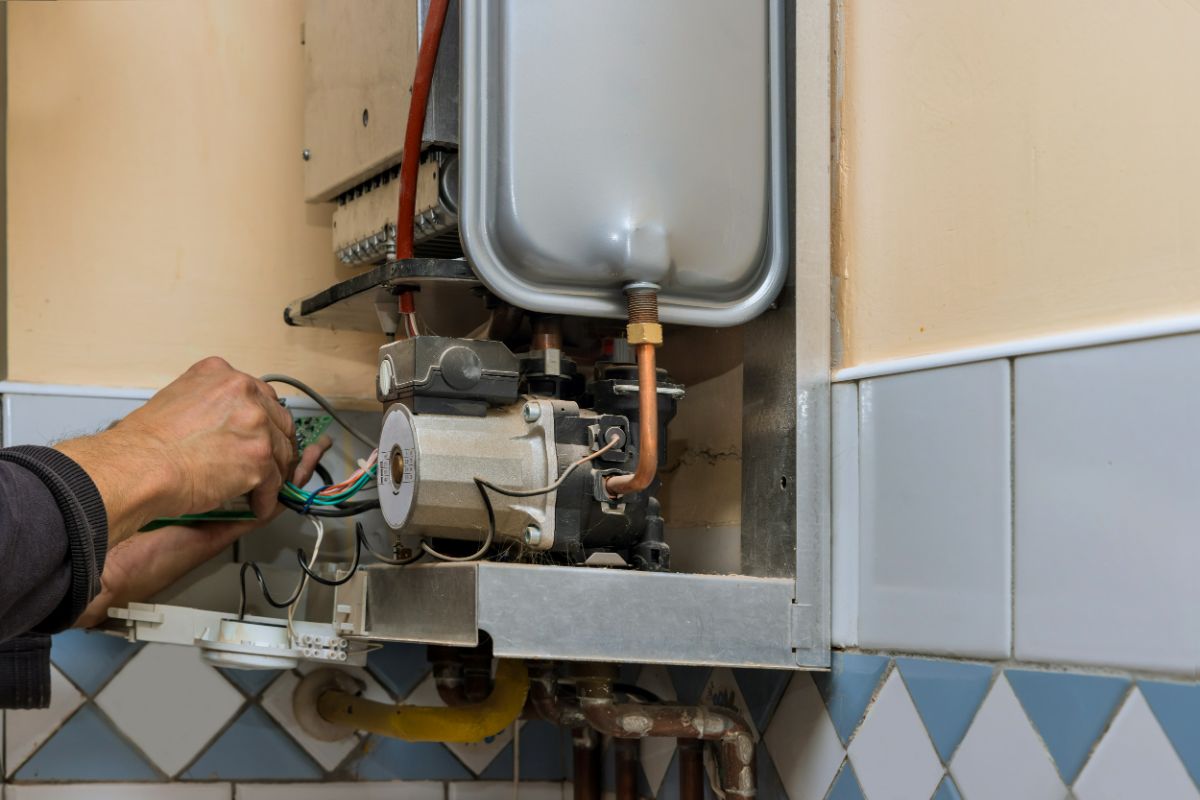Useful Strategies for Maintaining Your Home's Hot Water SystemEffective Techniques for Maintaining Your Home's Hot Water SystemHow to Effectively Care for Your Home's Hot Water System
Useful Strategies for Maintaining Your Home's Hot Water SystemEffective Techniques for Maintaining Your Home's Hot Water SystemHow to Effectively Care for Your Home's Hot Water System
Blog Article
Everyone maintains his or her own perception when it comes to Tips on Maintaining a Water Heater.

Hot water is essential for everyday convenience, whether it's for a revitalizing shower or washing dishes. To guarantee your warm water system runs effectively and lasts much longer, routine maintenance is crucial. This short article provides functional tips and insights on how to maintain your home's warm water system to avoid disruptions and pricey repair services.
Introduction
Preserving your home's warm water system may seem difficult, but with a couple of straightforward actions, you can ensure it runs smoothly for several years to come. This overview covers everything from recognizing your hot water system to do it yourself maintenance ideas and recognizing when to contact professional help.
Significance of Preserving Your Warm Water System
Routine upkeep not only extends the life expectancy of your warm water system yet likewise guarantees it operates effectively. Ignoring upkeep can lead to reduced effectiveness, higher power costs, and even premature failure of the system.
Indicators Your Warm Water System Demands Upkeep
Knowing when your warm water system needs attention can protect against major concerns. Watch out for indicators such as irregular water temperature, odd noises from the heating unit, or rustic water.
Recognizing Your Warm Water System
Before diving right into maintenance jobs, it's valuable to understand the fundamental elements of your hot water system. Normally, this includes the hot water heater itself, pipes, anode poles, and temperature level controls.
Month-to-month Upkeep Tasks
Regular month-to-month checks can help capture minor problems before they escalate.
Flushing the Hot Water Heater
Flushing your hot water heater gets rid of sediment build-up, enhancing efficiency and lengthening its life.
Checking and Replacing Anode Rods
Anode poles avoid deterioration inside the tank. Evaluating and changing them when worn out is vital.
Checking and Changing Temperature Level Settings
Changing the temperature setups guarantees optimum efficiency and safety and security.
DIY Tips for Maintenance
You can execute a number of maintenance jobs yourself to keep your hot water system in top problem.
Looking for Leaks
On a regular basis check pipelines and connections for leakages, as these can result in water damages and greater costs.
Examining Pressure Alleviation Valves
Checking the stress relief valve ensures it operates properly and avoids too much pressure build-up.
Shielding Pipelines
Protecting warm water pipes lowers warm loss and can save power.
When to Call a Professional
While do it yourself maintenance is valuable, some issues call for expert expertise.
Complex Problems Calling For Specialist Help
Examples consist of major leaks, electrical problems, or if your water heater is consistently underperforming.
Routine Expert Maintenance Perks
Professional upkeep can include thorough inspections, tune-ups, and guaranteeing conformity with safety and security standards.
Conclusion
Routine upkeep of your home's warm water system is essential for effectiveness, long life, and cost financial savings. By following these tips and understanding when to look for professional assistance, you can make certain a trusted supply of warm water without unexpected disruptions.
How to Maintain and Troubleshoot Your Heat Pump Water Heater
Know Your Water Heaters Error Codes and How to Clear Them
If your unit is WiFi-enabled, pay attention to the notifications your water heater system sends you and make sure to read and investigate error codes as soon as possible. If your machine has an error code readout on the unit, use your owner’s manual for the hot water heater and find out what the codes mean and how they might be affecting your water heating system. Follow the manufacturer’s directions to assess the issue and clear the code, or call a licensed plumber to take care of that for you.
Change Your Filters Monthly or As-Needed
Heat pump water heaters come equipped with an air filter, usually on the top of the unit where the water heater pulls air into the compressor. Check the filter every few months (put a reminder in your smartphone to make sure you don’t forget!). This will keep peak air flowing into your unit, helping it to work as efficiently as possible and resulting in energy savings over time.
Clean the Condensate Lines
Heat pump water heaters have a condensate drain. As the unit dehumidifies the surrounding area, the moisture has to go somewhere! Make sure to clean this condensate line every year to ensure it doesn’t get backed up with sediment or mold.
To clean the condensate lines, pour a cup of bleach in the access opening of the unit to kill any mold or mildew. Check that the bleach or water flows freely out of the lines, and unclog the lines if needed.
Flush Your Heat Pump Water Heater Annually
Heat pump water heaters are also sometimes referred to as hybrid heat pump water heaters. This is because they contain a backup heating electric heating element inside the tank: the same kind of anode rods used in traditional electric water heaters. That anode rod can become corroded over time from the minerals in your water, and it can begin to decay, break entirely, or heat less efficiently as it becomes corroded. One way to minimize or avoid this corrosion is by flushing your heat pump water heater annually. Just like flushing standard electric or gas water heaters, flushing your water heater is something that any homeowner can DIY if they have a few basic tools and some gumption.
https://www.waterheatersnow.com/blog/how-to-maintain-and-troubleshoot-your-heat-pump-water-heater

Hopefully you enjoyed reading our topic about Tips on Maintaining a Water Heater. Thanks so much for spending some time to read through our article. Those who appreciated our page plz make sure you remember to share it. Thank-you for your time spent reading it.
Get Quote Now Report this page